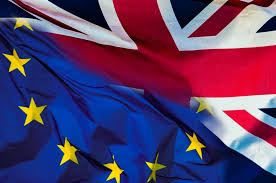As the 31st of December Brexit deadline looms ever closer, we look back at over 4 years and 9 rounds of UK/EU negotiations on Britain’s withdrawal from the Union. The EU is Britain’s biggest trading partner, the UK is the EU’s second biggest trading partner after the US. Thus far, the Withdrawal Agreement, effective as of February 2020, is the most tangible evidence of the future EU/UK relationship. But if one ignores the politics and ideological chest thumping for a moment, one might view Brexit as one of the largest, most ambitious trade negotiations in history.
‘If we don’t achieve some sort of deal, history will not look kindly upon us’ says Director of the Bruegel Institute, Guntram Wolff. Although it might seem that little progress has been made on Brexit besides increasing levels of acrimony between the divorcees, one should not overlook the remarkably united and hence relatively rapid response from the EU. Composed of 27 member states, all of which have varied trading relations with the UK, most agree that credit goes to Michel Barnier and his team for ensuring a united EU stance.
André Sapir also credits the Trump presidency with helping the EU ‘to maintain cohesion on Brexit’. Perhaps more importantly, he predicts that a change of president in the US, will have a significant impact on EU/UK relations. This remains to be seen but Democratic candidate, Joe Biden, has made it clear that the Good Friday agreement must be respected. Sapir admits that Westminster’s recent amendment to the Withdrawal Agreement with regards to the Irish question, ‘was like a bomb’ that ‘very nearly derailed negotiations’.
No to the European Court of Justice
Aside from this apparently intractable issue, two others remain. The need for a so-called ‘level playing field’, meaning agreement on a common dispute settlement mechanism that is not the European Court of Justice. And, the somewhat erroneous issue of fisheries. The latter has caused concern on both sides. It is more symbolic than real in terms of its economic importance to an UK/EU trade deal. The contribution of the fishing sectors to the economies of both the EU and the UK are negligible.
However, fishing agreements affect coastal communities in France and Scotland as well as the Netherlands and Denmark, to a lesser degree. So politically, it is a highly charged issue. The EU has previously tied access to financial markets to fishing rights but commentators agree that this may prove counter-productive. As Deputy Director of Bruegel, Maria Demertzis, asks, ‘why are we spending all our dry gun power on an issue that is less important than other things?’
‘I’m not frightened at all by the fisheries issue’ – André Sapir.
But Sapir is more optimistic. ‘Personally, I’m not frightened at all by the fisheries’ he says. Pointing out that the fish which are taken out of British waters, are consumed on the plates of the EU27. This is the essence of a trade deal he insists. The Senior Bruegel Fellow also notes that the three major sticking points in Brexit negotiations have remained largely unchanged. He sees this as positive. With regards to the level playing field issue, Sapir suggests that both sides would have to agree on a set of trading rules, ‘almost identical to what we have now’. They would then have to find some other means than the European Court of Justice, to ensure enforcement. Clearly it would have to be ‘something that both sides can trust’. ‘Trust based on mutual interests is really what lies at the core of this agreement’ he says.
The issue of trust is a delicate one. Although most agree that European and British interests lie close together, trust between the two sides has been stretched over the past 4 years of rocky negotiations. Demertzis points to the ‘symbolic significance’ of the UK’s recent decision to ignore previous agreements and go against international law. Such actions highlight the fact that trust alone is not enough. Guntram Wolff agrees, emphasising the importance of clear rules that can be effectively enforced. Essentially, it is about ‘finding the right balance between access to the market and ensuring a level playing field’. Deputy Director, Demertizis agrees that financial markets and access to them is a key issue. She also raises the issue of defence. Noting that this too is an important element for the EU to try and secure.
The time for game playing is over’ – Guntram Wolff
But it is Guntram Wolff’s comment that, ‘the time for game playing is over’, which echoes the sentiment of many EU negotiators. Will there be a deal, of sorts, at the very last minute? Maria Demertzis and André Sapir are optimistic that some sort of agreement will be reached. Wolff is less optimistic, insisting that there will be no more extensions. ‘We are in the tunnel and everyone will have to find a way to agree’ he says. As the economic realities of Brexit, made worse by the global pandemic, become increasingly clear, it is hoped that pragmatism triumphs over misplaced idealism. Trade has formed the foundation for many a peace treaty. Brexit, one hopes, will prove no different.

